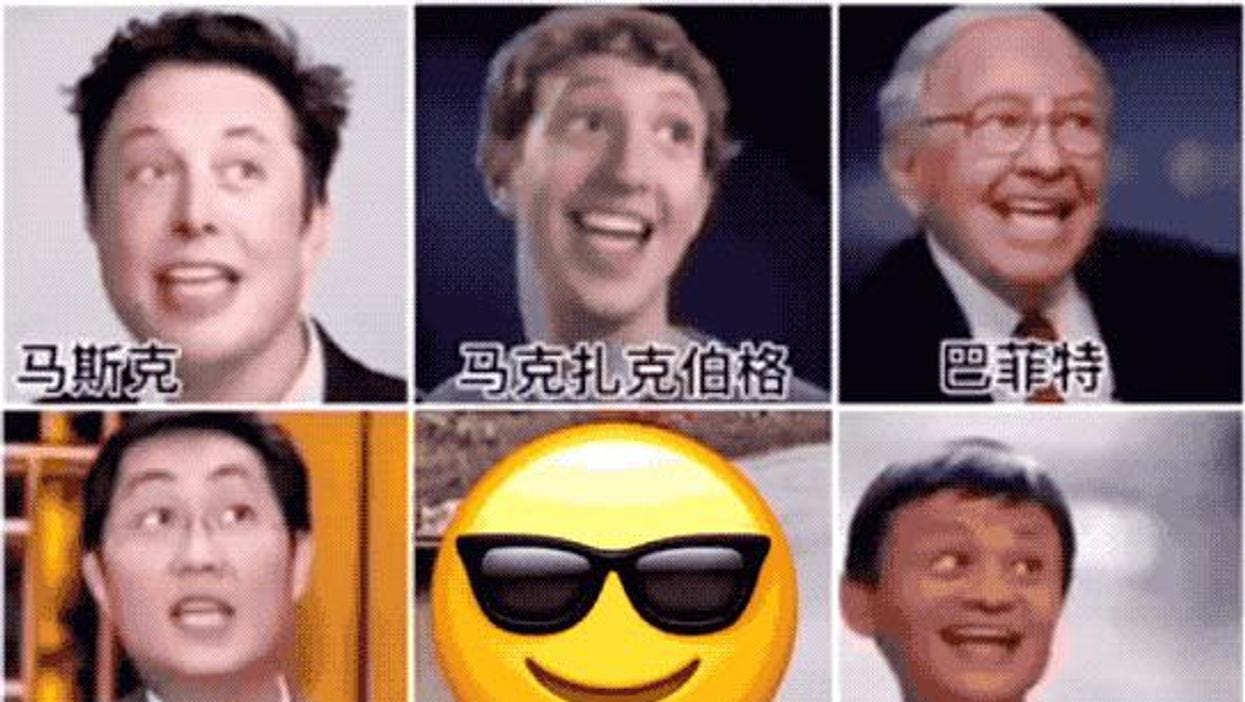China Tightens Regulations on Generative AI and Deepfake; Searching for the Next Chinese ChatGPT; Tencent's AI App Surprises with Viral Overseas Success
Weekly China AI News from Dec. 5 to Dec. 11
Dear readers, this week's newsletter centers around generative AI. Chinese superpower cyberspace regulator just released the final version of its deepfake regulation with additions on generative AI. We will discuss ChatGPT and its rippling effect in China. Tencent’s AI app Different Dimension Me, which was purposefully built for Chinese users, surprisingly went viral overseas. Plus, Xiaomi’s robot CyberOne just learned a new skill: Drumming!
Weekly News Roundup
China Strengthens Oversight of Generative AI and Deepfake with New Regulations
What’s new: The Chinese cyberspace regulator, the Cyberspace Administration of China, has issued new rules for generative AI and deepfake technology in a bid to tighten its grip on their use. The new regulations will take effect on 10 January 2023 and will prohibit the use of generative AI technology to create content that is illegal, spread false news, or damage national security. AI-generated content must also be distinguished from human-generated content with a clear mark.
What’s generative AI: Generative AI, also known as deep synthesis technology, refers to technologies that use deep learning, virtual reality, or synthetic algorithms to create text, images, audio, video, virtual scenes, and other digital information. Some popular generative AI and deepfake technologies include text generators like GPT-3, conventional AI bots like ChatGPT, face swapping, text-to-speech, and text-to-image models like Stable Diffusion.
Some noteworthy highlights from the new regulations include:
Content: No organization or individual shall use deep synthesis services to produce, reproduce, publish, or disseminate information prohibited by laws and administrative regulations, nor shall they use deep synthesis services to engage in activities prohibited by laws and administrative regulations that endanger national security and interests, damage the image of the country, infringe upon public interests, disrupt economic and social order, or infringe upon the legitimate rights and interests of others.
Fake news: Deep synthesis service providers and users shall not use deep synthesis services to produce, reproduce, publish, or disseminate false news information.
Identification: Deep synthesis service providers shall authenticate the true identity information of deep synthesis service users based on mobile phone numbers, ID card numbers, unified social credit codes, or national network identity authentication public services in accordance with the law, and shall not provide information publishing services to deep synthesis service users who have not undergone true identity information authentication.
Moderation: Deep synthesis service providers shall strengthen the management of deep synthesis content and adopt technical or manual means to review the input data and synthesis results of deep synthesis service users.
Public opinion: Service providers that use AI for deep synthesis and have the ability to influence public opinion or mobilize social activity must follow the regulations outlined in the 'Internet Information Service Algorithm Recommendation Management Regulations'.
Who Will Be the Next Chinese ChatGPT?
ChatGPT everywhere: ChatGPT, a new AI-powered chatbot, took the internet by storm last week. Created by OpenAI, the chatbot uses natural language processing to generate responses, write lyrics, and even generate codes in response to users' prompts in real-time. ChatGPT quickly gained popularity on social media platforms and news outlets, with many users praising its ability to hold engaging and seemingly human-like conversations.
Chinese ChatGPT? Despite the buzz surrounding ChatGPT worldwide, the chatbot is not currently available in mainland China unless users connect to a virtual private network (VPN). There is currently no Chinese counterpart to ChatGPT that is as intelligent, multi-talented, and accurate as the model. However, it is anticipated that potential candidates such as Baidu, Huawei, Alibaba, and BAAI may release their own versions of ChatGPT in 2023.
Bringing ChatGPT to WeChat: Mainland China users who have basic programming knowledge can still use ChatGPT using alternative methods. Some Chinese developers have created a new GitHub project that allows users to integrate ChatGPT into the popular messaging app WeChat. The project has received over 3,200 stars. Users can either deploy ChatGPT on WeChat using GoLang, or add the "RuYoChatBot" on WeChat.
Chinese ChatGPT on VSCode: A Chinese developer has created a Chinese version of ChatGPT as a plugin on VSCode, a code editor for building web and cloud apps. The Chiense ChatGPT plugin has received over 40,000 downloads in a few days.
Tencent’s AI Anime Converter Goes Viral Overseas
What’s new: Last month, an anime-style converter created by Tencent unexpectedly went viral outside of the Chinese social media. Named “Different Dimension Me”, the website can transform any image - whether it's a normal photo, a meme, or even a screenshot from an animation or comic - into an anime version of itself.
The product has become so popular that many users share their creations on social media and the hashtag #DifferentDimensionMe trending on Twitter. Below are some social sharing.
Stable Diffusion: Some have speculated that the product uses a Stable Diffusion model, but focuses on amine style transfer, according to Chinese media “Guixingren”.
Service is now limited: However, the sudden popularity of the product has caused issues for Tencent, with the team having to limit the number of users in order to prevent the system from crashing. This has led to some confusion among overseas users, who have been greeted with error messages when trying to use the product.
Trending Research
Vision-Centric Foundation Model: Researchers from BAAI launched EVA, a vision-centric foundation model to explore the limits of visual representation at scale using only publicly accessible data. EVA is a vanilla ViT pre-trained to reconstruct the masked out image-text aligned vision features conditioned on visible image patches. Via this pretext task, researchers can efficiently scale up EVA to one billion parameters, and sets new records on a broad range of representative vision downstream tasks, such as image recognition, video action recognition, object detection, instance segmentation and semantic segmentation without heavy supervised training. Read the paper EVA: Exploring the Limits of Masked Visual Representation Learning at Scale for more.
CyberOne drums: Last week, Xiaomi roboticists released a video of its humanoid robot CyberOne to play the drums. You can watch the demo video below. In an interview with IEEE Spectrum, Xiaomi roboticist explained why they choose drumming as a task for CyberOne, “compared to rookie drummers, humanoid robots have more advantages in hand-foot coordinated motion and rhythmic control.”






